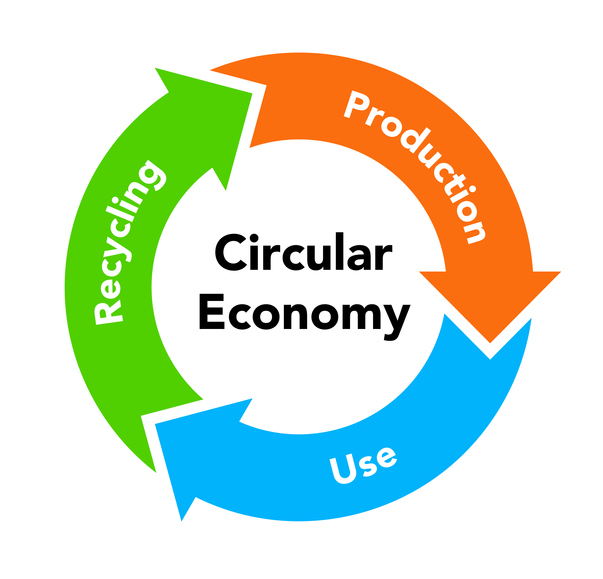Search This Blog
An Environmental website whose primary focus is to help everyone understand the impact humans have on the physical environment with resources that help us achieve what we call a safe and clean environment.
Featured
- Get link
- X
- Other Apps
Circular Economy: Minimizing Waste and Maximize Resource Efficiency
The concept of a circular economy is an innovative approach to economic and environmental sustainability that aims to minimize waste and maximize resource efficiency. Unlike the traditional linear economy, which follows a "take-make-dispose" model, the circular economy seeks to create a closed-loop system where resources are kept in use for as long as possible, through recycling, upcycling, and extending the product lifecycle.
Introduction
At its core, the circular economy focuses on three key principles: designing out waste and pollution, keeping products and materials in use, and regenerating natural systems. By adopting these principles, companies, and initiatives can significantly reduce their environmental impact while also creating economic opportunities.
One prominent example of a company that has embraced circular economy principles is Interface, a global leader in modular flooring. The interface has set a bold goal to become a fully circular business by 2020. They have implemented innovative strategies such as recycling old carpets to produce new ones, using renewable and recycled materials in their products, and designing their products for easy disassembly and recycling. Through these efforts, Interface has been able to reduce its carbon footprint and minimize waste generation.
Another notable example is Patagonia, a well-known outdoor apparel brand. Patagonia encourages customers to repair their products instead of replacing them through their "Worn Wear" program. They offer free repairs for their garments and promote the idea of extending the lifespan of their products. This initiative not only reduces the need for new products but also fosters a sense of brand loyalty and customer satisfaction.
The Ellen MacArthur Foundation, a global nonprofit organization, is actively promoting the circular economy through various initiatives. Their "Circular Economy 100" program brings together businesses, innovators, and governments to collaborate and drive the transition to a circular economy. The foundation also publishes research and provides practical tools and guidance for businesses to implement circular economy strategies.
In addition to these examples, many other companies and initiatives have embraced circular economy principles across various industries. For instance, Philips has shifted from selling light bulbs to providing lighting as a service, taking responsibility for the entire lifecycle of their products. H&M, a leading fashion retailer, has launched a garment collection program to collect used clothing and give them a new life through recycling or upcycling. The "Cradle to Cradle" certification program ensures that products are designed and manufactured with the principles of a circular economy in mind.
Governments and policymakers are also recognizing the importance of the circular economy. The European Union has adopted a Circular Economy Action Plan, which sets ambitious targets for waste reduction, recycling, and resource efficiency. China has implemented the National Sword policy, placing stricter regulations on imported waste and encouraging domestic recycling and resource conservation.
Conclusion
In conclusion, the concept of a circular economy offers a promising solution to the environmental challenges we face today. By minimizing waste, maximizing resource efficiency, and promoting innovative business models, companies and initiatives can create a more sustainable and prosperous future. The examples mentioned above demonstrate that embracing circular economy principles not only benefits the environment but also offers economic opportunities and fosters positive change across various sectors.
- Get link
- X
- Other Apps
Popular Posts
Environmentally Persistent Pharmaceutical Pollutants (EPPPs): A Growing Threat to Our Ecosystems
- Get link
- X
- Other Apps
Circular Economy Important Websites You Should Look At
- Get link
- X
- Other Apps


Comments
Post a Comment